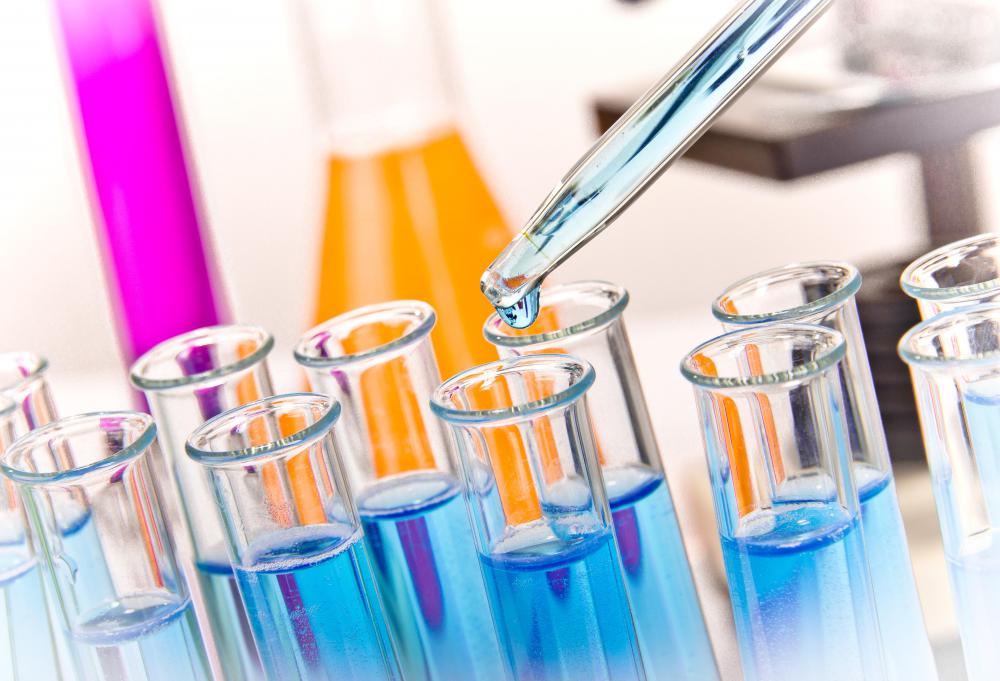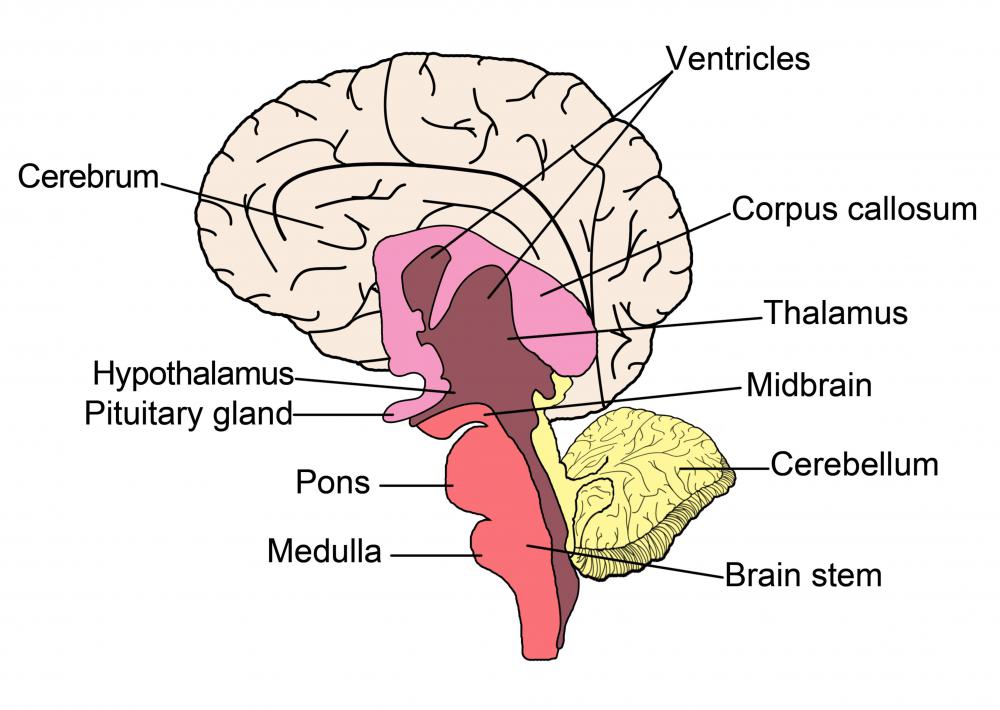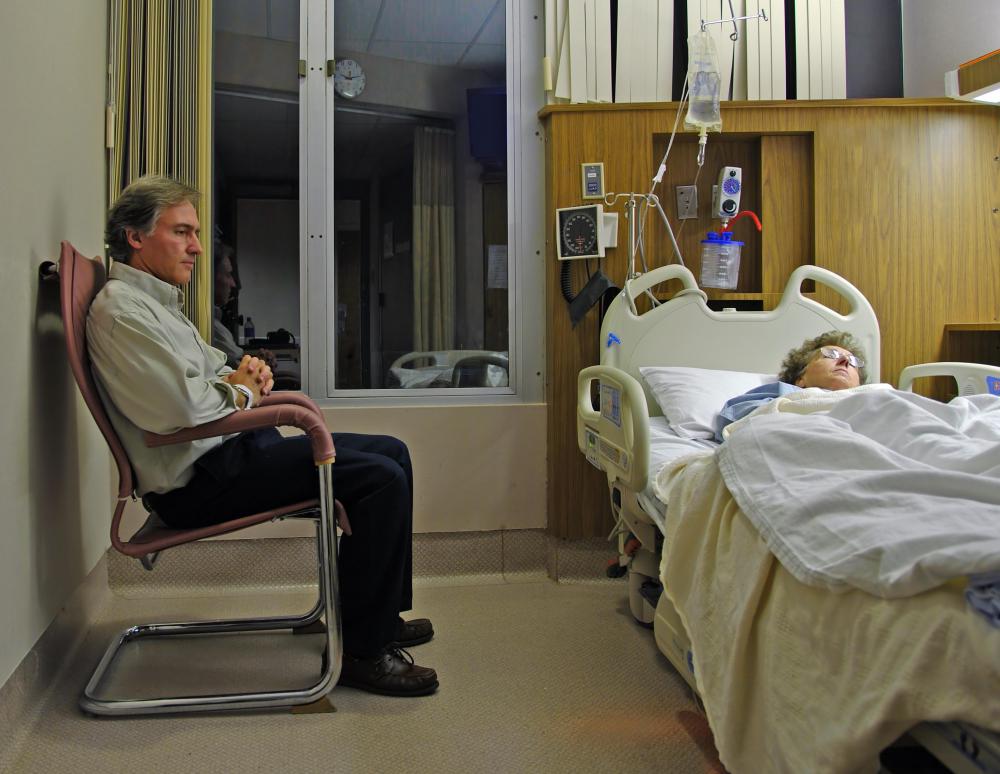At WiseGEEK, we're committed to delivering accurate, trustworthy information. Our expert-authored content is rigorously fact-checked and sourced from credible authorities. Discover how we uphold the highest standards in providing you with reliable knowledge.
What is Secondary Hypothyroidism?
Reduced thyroid activity resulting from the impaired function of either the hypothalamus or pituitary gland is known as secondary hypothyroidism. Frequently diagnosed in women 50 years of age and older, this form of hypothyroidism is manageable with appropriate treatment. There are serious complications associated with secondary hypothyroidism, including heart disease, coma, and death. Treatment for this condition is centered on restoring appropriate hormone levels and proper thyroid function.
There are two classifications of hypothyroidism: primary and secondary. Primary hypothyroidism is a disruption of proper hormone production that originates with the thyroid gland. Secondary hypothyroidism occurs when the thyroid gland is adversely affected by an impairment of the pituitary gland or hypothalamus.

The thyroid gland produces the hormones triiodothyronine (T3) and thyroxine (T4) that work directly to help regulate metabolism. When T3 and T4 production becomes disrupted, the pituitary gland and hypothalamus increase hormone production to compensate for the loss. Thyroid disorders, such as hypothyroidism, occur when the functionality of any of these organs becomes inhibited. Secondary hypothyroidism results when communication in the pituitary gland and hypothalamus breaks down and a failure to release thyroid stimulating hormone (TSH) or thyrotropin releasing hormone (TRH) occurs.

Several situations may contribute to the development of secondary hypothyroidism. Individuals who have undergone radiation therapy or whose brain has otherwise been exposed to radiation may develop secondary hypothyroidism. Tumors that develop in either the pituitary gland or hypothalamus may also contribute to the development of hypothyroid disorder. Those who develop inflammation or an infection of the pituitary gland, due to excessive blood loss or illness, may be diagnosed with hypothyroidism.

There are several signs and symptoms of secondary hypothyroidism that may directly and adversely affect an individual’s ability to function. Varying in severity, symptoms develop over time and tend to gradually impair one's mental and physical abilities. An individual in the early stages of hypothyroidism development may experience signs that include joint discomfort, weight gain, and fatigue. Additional symptoms may include thinning hair, physical weakness, and an intolerance of cold. Signs that occur as the disorder progresses may include a disruption of menstruation in women, excessive flaking or drying of the skin, and speech or hearing impairment.

A physical examination conducted in combination with blood and imaging testing may be utilized to confirm a diagnosis of hypothyroidism. Preliminary signs detected during a physical exam that may indicate there is a thyroid issue include lowered heart rate, blood pressure, and temperature. Imaging testing, including X-ray and magnetic resonance imaging (MRI), may be conducted to evaluate the condition of the individual’s heart and pituitary gland. Additional lab testing may be conducted to assess cholesterol and hormone levels, as well as liver function.

Secondary hypothyroidism treatment generally centers on compensating for the hormone deficiency and restoring proper thyroid function. A prescription medication may be recommended to artificially compensate for the hormone deficiency, a process known as hormone replacement therapy. In some cases, life-long hormone replacement therapy may be required. Treatment for a tumor-induced hypothyroidism may require surgery to remove the mass and post-operative hormone replacement therapy.

Proper thyroid function may be restored with an early diagnosis. A good prognosis is dependent on appropriate and continued treatment. Individuals with hypothyroidism who discontinue their hormone replacement therapy are at risk for symptom recurrence and a worsening of symptoms.
Complications associated with hypothyroidism may include infertility and heart disease. A potentially life-threatening complication of hypothyroidism is a rare condition known as myxedema coma. Symptoms of this serious condition include unconsciousness, labored breathing, and lowered blood pressure. Individuals exhibiting signs of suspected myxedema coma should seek immediate medical attention. Treatment for this complication includes the intravenous administration of steroidal medication and replacement therapy.
AS FEATURED ON:
AS FEATURED ON:
















Discussion Comments
I'm not 50 and I've never had radiation, but most of my life has been absolute crap because male doctors thought I was just fat and lazy and female doctors said my thyroid tests were always fine. Either way, it was just go on your way and make yourself better. Thanks a lot.
Now I'm 39 and a little angry, yeah, but I've been diagnosed out of pocket by a diagnostic company I found myself, mind you, as pituitary thyroid. Awesome. Let's see if we can finally get some results. Maybe the last part of my life won't stink.
Post your comments